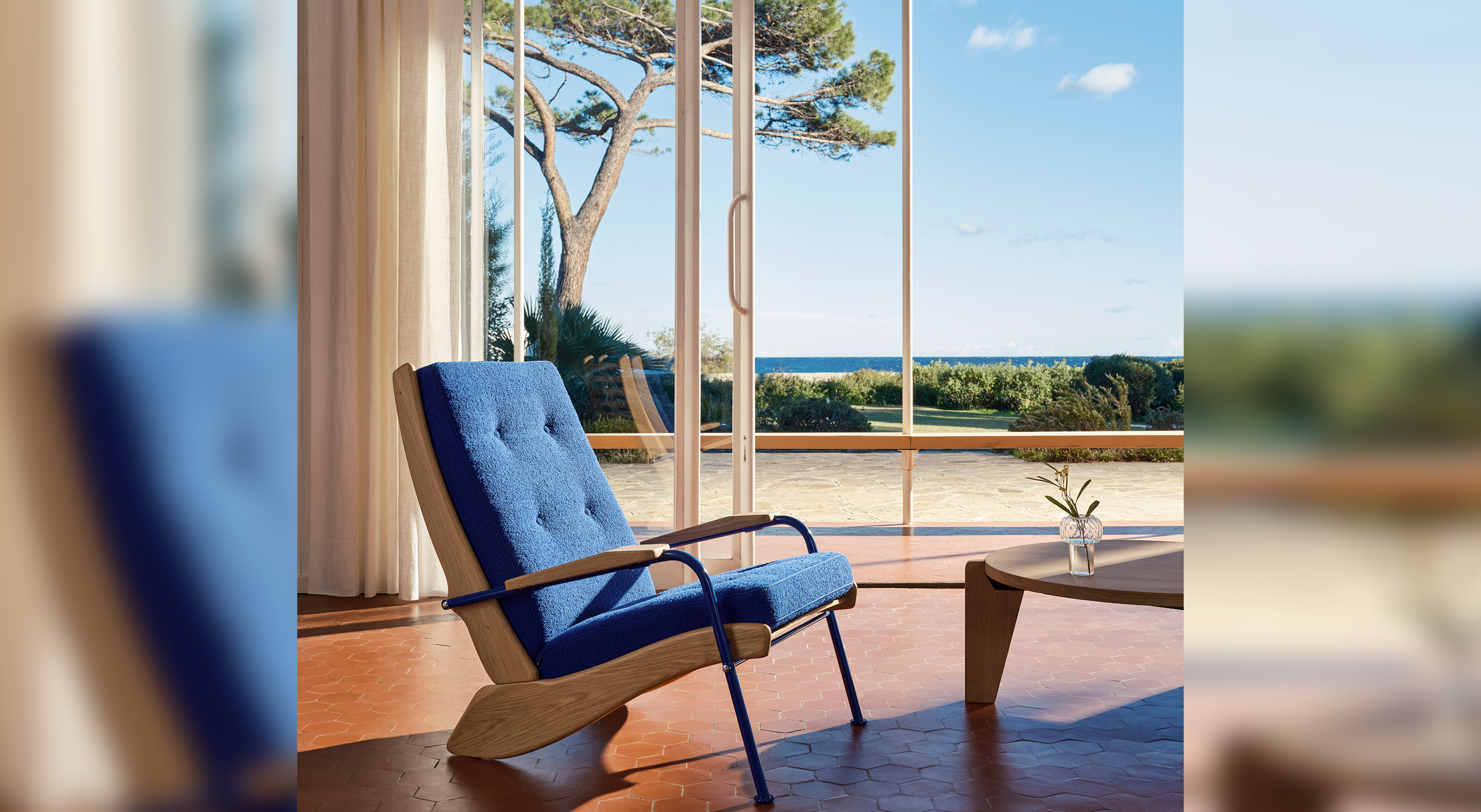Jean Prouvé’s modern spirit
Published on 5 September 2022

At their showroom, Vitra presents the reissue of original designs by Jean Prouvé. His daughter Catherine talks about the essence of his work.
Since 2002, Vitra has reissued a furniture collection designed by Jean Prouvé, in partnership with the estate of this designer, who passed away in 1984. The Standard chair, the Compas desk, the Potence sconce…reissues have helped democratize these icons of Modernist design, whose original pieces have reached stratospheric values at auction. Twenty years later, Vitra is offering Prouvé aficionados new designs carefully selected from the archives, with the help of Catherine Prouvé, his daughter. “Our collaboration with Vitra is the result of Jean Prouvé’s desire at the end of his life to get back to working on furniture. Knowing how important it was for him, we decided to undertake this collaboration, which has been very positive,” she says. She was the one who brought up the subject of new products during an exclusive conversation in the Vitra professional showroom on Friday, September 9, during Paris Design Week. Here, we find a “Wall-Mounted Shelving” set designed in 1936 for the Ecole Professionnelle de Metz. In typical Prouvé style, it is made up of two vertical columns in painted metal, streamlined like an aircraft tail fin, with wooden shelving. In addition to two new stools, we can also discover the original conical lampshade designed for the Potence sconce. And lastly, the “classics” get new colors drawn from the Atelier Prouvé palette. The Standard chair, the executive Armchair, the Cité armchair, the desk lamp, and the tables come in Marcoule Blue, Vermeer grey, unripened wheat, or Dynastic Blue.
Jean Prouvé was never officially an architect nor an engineer, and the term designer had yet to be invented, but he is now considered a master in all these domains. During the reconstruction period that followed the Second World War, Prouvé and his colleagues developed buildings and furniture that could be mass-produced using minimal raw materials. Their streamlined aesthetic is the perfect solution to a complex equation: functionality at a reasonable cost, using an economy of materials, mostly wood and metal, materials that are durable (sustainable) and recyclable. “Jean Prouvé furniture is timeless because it’s the mark of a certain type of creativity that had previously been unexplored”, insists Catherine Prouvé. “The most important thing is to pass down Jean Prouvé’s commitment to work full of newness within a context that sought to provide the very best products at the most reasonable cost, surrounding himself with a team that took an active part in research to create prototypes.” An example of principles that are more relevant and modern than ever.